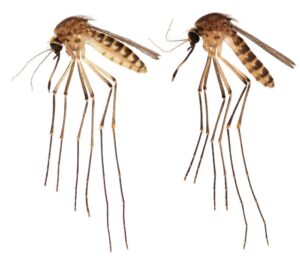A roundup of news items related to climate change and other environmental issues in Florida:
Beware Florida: New mosquito found ‘thriving’ in 3 counties may spread, transmit disease | Treasure Coast Newspapers

Scientists are concerned about the spread of a new mosquito species found “thriving” in at least three South Florida counties because it could transmit diseases such as West Nile virus and St. Louis encephalitis.
Culex lactator, native to South and Central America, has been found in Lee, Collier and Miami-Dade counties so far.
“I expect it to spread throughout South Florida and northward along both coasts,” said Lawrence Reeves, a researcher at the University of Florida Medical Entomology Laboratory in Vero Beach, whose team discovered it.
Feed the hungry, fight climate change: The campaign to curb food waste in South Florida | Miami Herald
Ellen Bowen is on a mission to combat food waste in South Florida — a campaign that not only feeds the hungry but, perhaps surprisingly, can also help curb climate change.
Bowen is the founder of the South Florida chapter of Food Rescue US, a group of 1,000 local volunteers that collects perfectly good food that would otherwise be thrown away at grocery stores, restaurants and events and delivers it to churches, shelters and food pantries across the region.
They’ve salvaged wagyu beef sliders from the VIP suites at Miami’s Formula 1 race, filet mignon from a medical conference at the Fontainebleau and an untold number of eggs, waffles, bacon and other unused food from the end of Sunday brunch services at upscale restaurants across South Florida. They take it all directly to places like Camillus House, Lotus House and the Miami Rescue Mission.
Florida students advocate for clean energy at the State Capitol | WLRN
More than a hundred students from across Florida traveled to the State Capitol on Wednesday to advocate for bipartisan legislation that would make it easier for schools to install solar panels.
“If these emergency shelters that people rely on across the state of Florida had solar power, they would have access to energy the whole time because the sun is a free resource,” said Samantha Kaddis, a Florida State University senior who’s studying environment and society.
Legislation filed in the House and Senate — HB 195 and SB 178 — would give school districts greater flexibility to spend money on renewable-energy and energy-storage technology, generators and upgrades to emergency shelters.
If you have any news items of note that you think we should include in our next roundup, please email The Invading Sea Editor Nathan Crabbe at ncrabbe@fau.edu.



